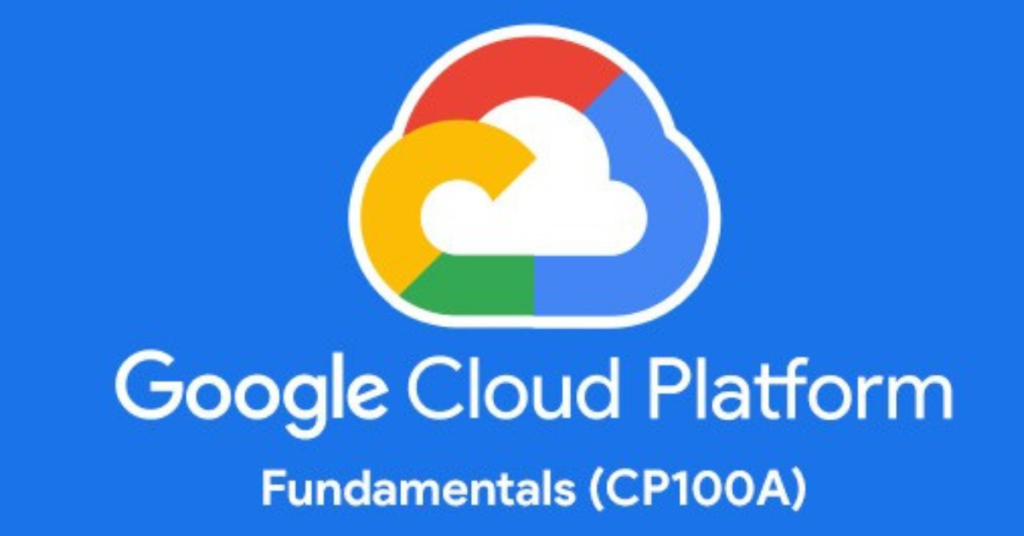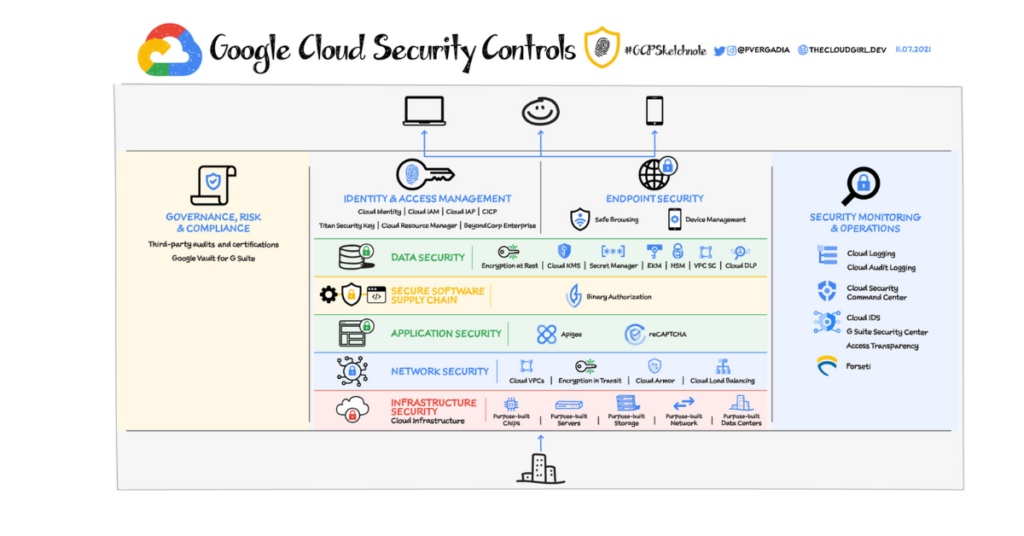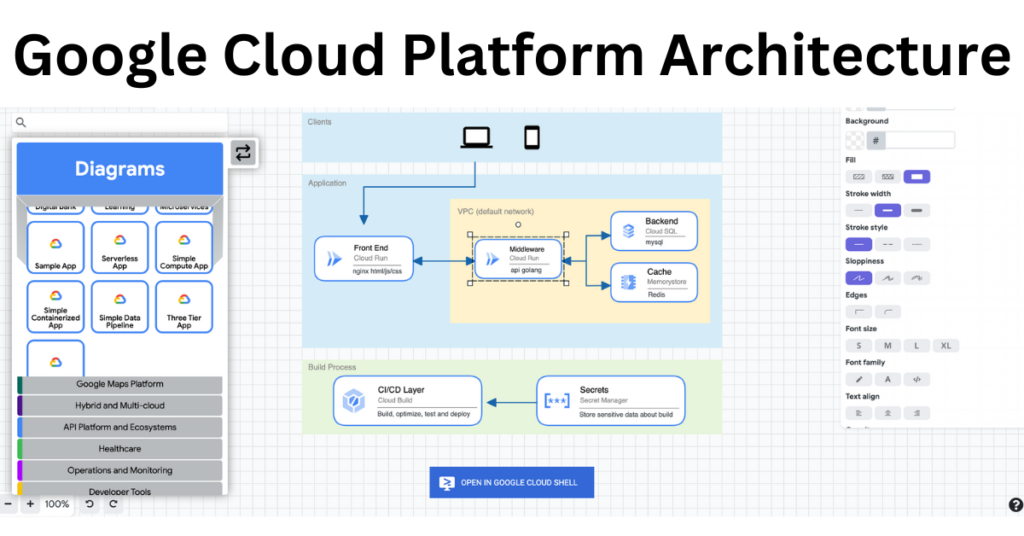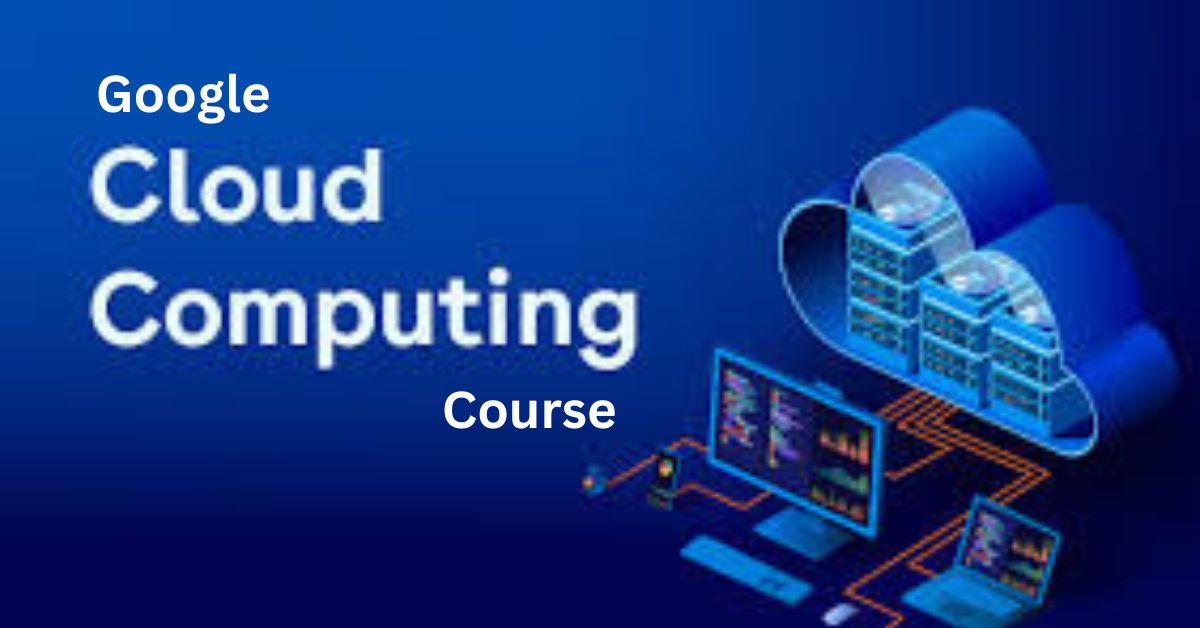Table of Contents
In today’s digital landscape, cloud computing has become a cornerstone of modern business operations. The Google Cloud Computing Course offers a comprehensive pathway for individuals and organizations to master this essential technology. This program provides in-depth knowledge of Google Cloud Platform (Google cloud computing course) and prepares participants to tackle real-world challenges in cloud infrastructure, data analytics, and application development.
The course covers a wide range of topics, from basic cloud concepts to advanced GCP services. Participants learn about cloud architecture, storage solutions, and networking fundamentals. They also gain hands-on experience with machine learning tools and big data processing. By completing this course, students can prepare for Google cloud computing course certification exams, enhancing their career prospects in the rapidly growing field of cloud computing.
Understanding Cloud Computing Fundamentals

Cloud computing has revolutionized the way organizations manage their IT infrastructure and deliver services. It involves providing services over the Internet, on-demand computing, and resource pooling for scalability and rapid elasticity . To grasp the fundamentals of cloud computing, it is essential to understand its service models, deployment types, and security considerations.
IaaS, PaaS, and SaaS
Cloud computing offers three primary service models:
- Infrastructure as a Service (IaaS): This model provides virtual hardware resources such as servers and storage . It gives users access to virtualized computing resources over the internet, allowing for flexibility in building out computing capabilities as needed .
- Platform as a Service (PaaS): PaaS offers tools for building and managing software applications . It provides a cloud-hosted platform for developing, running, and maintaining applications, enabling developers to focus on app creation without worrying about underlying infrastructure .
- Software as a Service (SaaS): This model delivers ready-to-use software applications over the internet. Users can access and run existing online applications without the need for installation or maintenance.
These service models are not mutually exclusive, and many organizations use a combination of them to meet their specific needs .
Public, Private, and Hybrid Clouds
Cloud services can be deployed in various ways:
- Public Cloud: Owned and operated by third-party providers, public clouds make resources available to the public over the internet . Examples include Amazon Web Services (AWS), Microsoft Azure, and Google Cloud Platform (GCP) .
- Private Cloud: This type of cloud is used exclusively by a single organization, either hosted on-site or by a third-party provider . It offers enhanced control and customization options for specific requirements.
- Hybrid Cloud: A combination of public and private cloud environments, hybrid clouds allow organizations to leverage the benefits of both types . This approach provides flexibility, scalability, and cost-effectiveness while maintaining control over sensitive data .
Cloud Security Basics

Security is a critical aspect of cloud computing. Here are some fundamental security considerations:
- Shared Responsibility: Cloud security involves a shared responsibility model between the cloud service provider and the customer . The level of responsibility varies depending on the service model and deployment type .
- Data Encryption: It is recommended to use data encryption for all information stored on cloud servers to ensure that even if data is stolen, it remains unreadable .
- Access Control: Implementing robust access control measures, including strong password policies and multi-factor authentication, is crucial to prevent unauthorized access .
- Employee Education: Training employees on cybersecurity best practices is essential, as human error is often a significant factor in security breaches .
- Regular Updates: Keeping software and systems continually updated with the latest patches and security fixes helps mitigate cyber threats .
By understanding these fundamental aspects of cloud computing, organizations can make informed decisions about adopting and implementing cloud services to meet their specific needs and security requirements.
Google Cloud Platform Architecture

Regions and Zones
Google Cloud Platform (GCP) offers a global infrastructure composed of regions and zones. Regions are specific geographical locations where users can host their resources, with each region containing three or more zones . Zones, on the other hand, are isolated locations within a region, serving as deployment areas for resources.
This architecture provides several benefits:
- Fault tolerance: By spreading resources across different zones and regions, users can design robust systems with higher failure independence .
- Reduced latency: Users can choose regions and zones close to their point of service to minimize network latency .
- High availability: Deploying applications across multiple zones in a region helps protect against unexpected failures .
Currently, Google Cloud boasts 36 regions and 109 zones worldwide, spanning North America, South America, Europe, Asia, and Australia .
Virtual Machine Instances
At the core of Google cloud computing course’s compute offerings are virtual machine (VM) instances. These are emulations of computer systems based on specific architectures, providing the functionality of physical computers. Key aspects of VM instances include:
- Creation and Management: Users can create and manage instances using various tools such as the Google Cloud console, the gcloud command-line tool, and the REST API .
- Operating Systems: Instances can run public images for Linux and Windows Server provided by Google, as well as private custom images created or imported by users .
- Machine Types: Users can choose predefined machine types or create custom ones to specify the number of virtual CPUs and amount of memory .
- Storage: Each instance comes with a small boot persistent disk containing the operating system, with options to add additional storage as needed .
- Access Management: For Linux instances, users can manage access using OS Login or SSH keys stored in project or instance metadata. For Windows Server instances, access is managed through generated credentials .
Google Cloud Networking
Google cloud computing course offers a range of networking solutions to connect and secure resources:
- Virtual Private Cloud (VPC): Each network interface of a Compute Engine instance is associated with a subnet of a unique VPC network .
- Connectivity Options:
- Cloud VPN: Ideal for private-to-private connectivity when the existing internet connection meets business requirements.
- Peering: Recommended for scenarios not requiring RFC1918-to-RFC1918 private address connectivity.
- Partner Interconnect: Suitable for private, high-performance connectivity without the need to install equipment .
- Dedicated Interconnect: Provides a private circuit directly to Google, offering RFC1918-to-RFC1918 private address connectivity.
- Cloud Router: A fully distributed and managed service that uses the Border Gateway Protocol (BGP) to advertise IP prefixes and program dynamic routes .
- Network Connectivity Center: Supports connecting different enterprise sites outside of Google Cloud using Google’s network as a wide area network (WAN).
These networking components work together to provide secure, flexible, and high-performance connectivity options for Google cloud computing course users, enabling them to build robust and scalable cloud architectures.
Developing Skills for Google Cloud Roles
In the rapidly evolving landscape of cloud computing, developing expertise in Google Cloud Platform (Google cloud computing course) roles has become essential for professionals seeking to advance their careers. Google Cloud offers a comprehensive learning path that guides individuals through curated collections of on-demand courses, labs, and skill badges, providing real-world, hands-on experience with GCP technologies .
You might Like this:
Best Cloud Storage for Personal Use in 2024
How to Earn Money Online: Top 10 Apps You Need in 2024
free money on cash app : A Comprehensive Guide 2024
Best Apps to make money to Unlock Your Earning Potential 2024
5 Best Free Budget App for Couples to Manage Money
Cloud Engineer Skills
Cloud Engineers play a crucial role in planning, configuring, setting up, and deploying cloud solutions . To excel in this role, professionals need to develop a range of skills:
- Cloud Architecture: A deep understanding of cloud architecture is fundamental for GCP (Google cloud computing course) Engineers. This includes proficiency in services such as Compute Engine, App Engine, and Kubernetes Engine .
- Technical Proficiency: Knowledge of a wide range of Google Cloud services is crucial, including data storage options like Cloud SQL and Bigtable, data processing tools such as BigQuery and Dataflow, and AI and machine learning services .
- Automation and Scripting: Skills in writing scripts using languages like Python or Bash, and using infrastructure as code tools like Terraform or Google Cloud Deployment Manager are essential .
- Security and Compliance: GCP Engineers must be well-versed in Google Cloud’s security features and understand compliance requirements to safeguard systems .
- Operational Management: Proficiency in using Google Cloud’s operations suite to monitor, troubleshoot, and optimize cloud resources is crucial .
To develop these skills, Google cloud computing course offers courses such as “Google Cloud Fundamentals: Core Infrastructure” and “Architecting with Google Compute Engine”. Additionally, hands-on labs and skill badges like “Implement Load Balancing on Compute Engine” and “Set Up an App Dev Environment on Google Cloud” provide practical experience .
Data Analyst Competencies
Data Analysts in the Google Cloud ecosystem gather and analyze data to identify trends and develop valuable insights . Key competencies for this role include:
- Data Collection and Storage: Understanding how to collect, store, and manage data effectively using Google Cloud tools .
- Data Exploration and Visualization: Proficiency in using tools like Looker for data exploration and analysis .
- SQL and BigQuery: Skills in writing SQL queries and using BigQuery for data analysis and machine learning .
- LookML Development: Ability to develop scalable, performant LookML (Looker Modeling Language) models.
- Data Ethics: Understanding of data ethics and its implications in data analysis .
Google cloud computing course offers courses like “Introduction to Data Analysis on Google Cloud” and “Exploring Data with Looker” to help develop these skills . Skill badges such as “Prepare Data for Looker Dashboards and Reports” and “Derive Insights from BigQuery Data” provide practical experience in these areas .
Machine Learning Expertise
Machine Learning Engineers on Google Cloud design, build, productionize, optimize, operate, and maintain ML systems. Developing expertise in this field involves:
- Data Preparation: Skills in improving data quality and performing exploratory data analysis .
- ML Model Development: Proficiency in building, training, and deploying ML models using tools like Vertex AI AutoML and TensorFlow .
- Feature Engineering: Understanding how to use Vertex AI Feature Store and improve the accuracy of ML models .
- MLOps: Knowledge of MLOps tools and best practices for deploying, evaluating, monitoring, and operating production ML systems .
- Specialized ML Areas: Expertise in areas such as computer vision, natural language processing, and recommendation systems .
Google cloud computing course provides courses like “Machine Learning on Google Cloud” and “Advanced Machine Learning with TensorFlow on Google Cloud” to develop these skills . Skill badges such as “Build and Deploy Machine Learning Solutions with Vertex AI” offer hands-on experience in applying ML techniques .
By focusing on these key areas and leveraging Google Cloud’s learning resources, professionals can develop the necessary skills to excel in various Google Cloud roles and contribute effectively to cloud-based projects and initiatives.
Conclusion
The Google Cloud Computing Course offers a comprehensive pathway to mastery in cloud technology, covering everything from basic concepts to advanced GCP services. This program has a significant impact on participants’ ability to tackle real-world challenges in cloud infrastructure, data analytics, and application development. By completing this course, students not only gain practical skills but also prepare themselves to earn Google Cloud certifications, boosting their career prospects in the fast-growing field of cloud computing.
As the digital landscape continues to evolve, the importance of cloud computing skills cannot be overstated. The Google cloud computing course Platform’s robust architecture, combined with its wide array of services and tools, provides a solid foundation to build upon. Whether you’re aiming to become a cloud engineer, data analyst, or machine learning expert, the skills and knowledge gained from this course will prove invaluable to navigate the ever-changing tech scene and stay ahead in your career.
FAQs
1. Do participants receive a certificate after completing a Google Cloud computing course? Yes, upon passing an exam and after their performance has been verified, participants are awarded a digital badge and certificate. Each certificate is uniquely numbered to indicate the recipient’s position among the certified individuals in the Google cloud computing course community.
2. What is the cost range for obtaining Google Cloud computing course certification? The cost for Google cloud computing course certifications varies between $99 and $200. It’s important to budget accordingly and check if your employer might cover the costs, particularly if the skills acquired will benefit the company.
3. Is it beneficial to obtain a Google Cloud computing course certification? Yes, obtaining a certification in Google cloud computing course (GCP) is highly beneficial. In the competitive field of cloud computing, having a cloud certification can significantly enhance your career prospects and personal growth. Google Cloud certifications are particularly valuable and are considered worth the investment.
4. Which Google Cloud computing course certification should beginners opt for? The Associate Cloud Engineer certification is the best choice for beginners. It’s designed as an entry-level certification that provides fundamental skills necessary for deploying, monitoring, and maintaining projects on Google cloud computing course, making it an excellent first step towards more advanced professional certifications.


2 thoughts on “Google Cloud Computing Course: Learn and Get Certified in 2024”